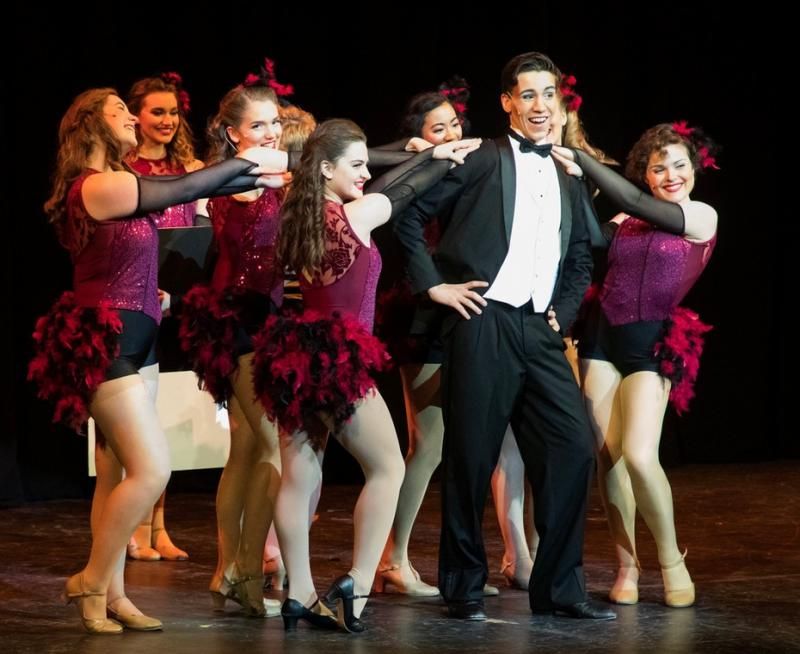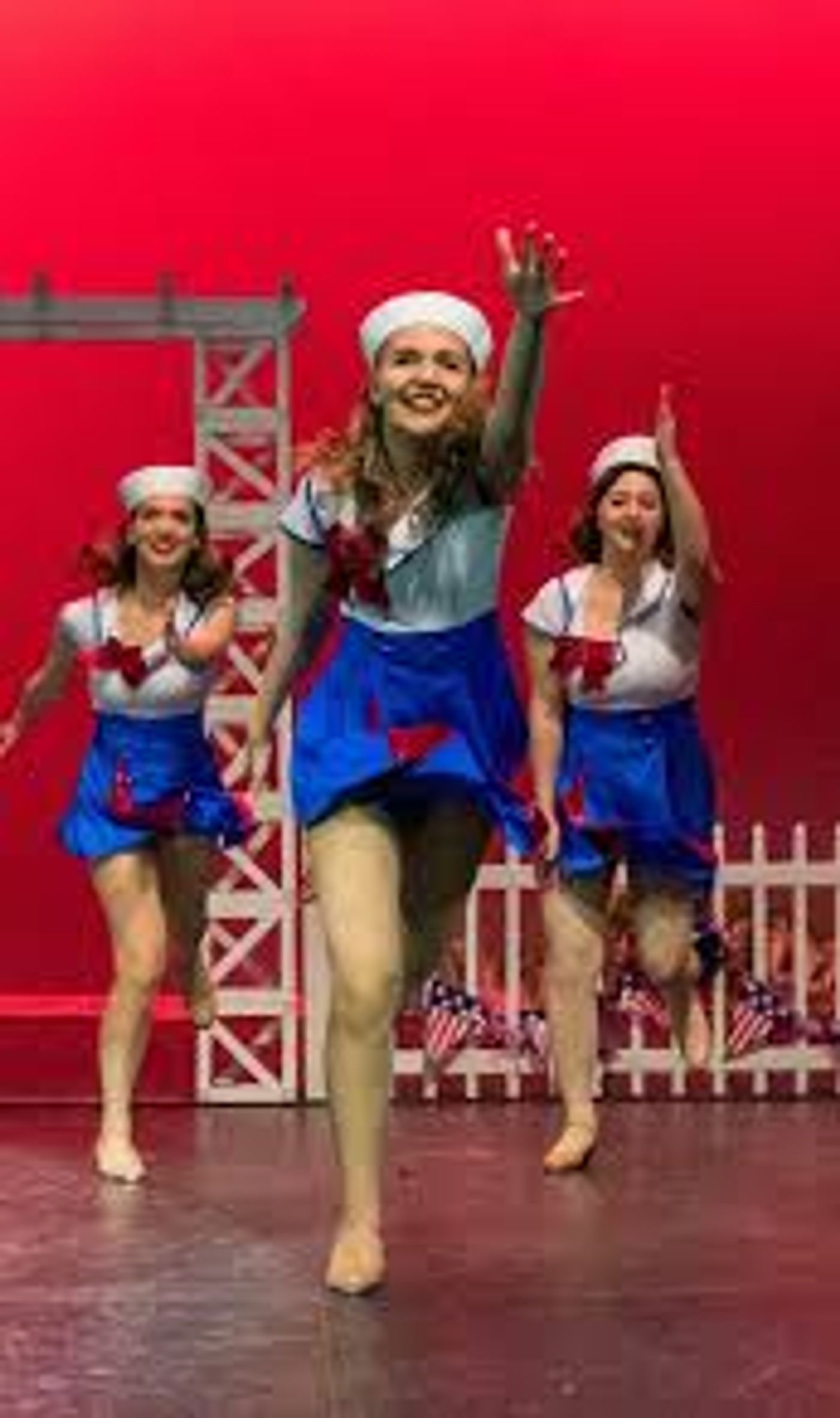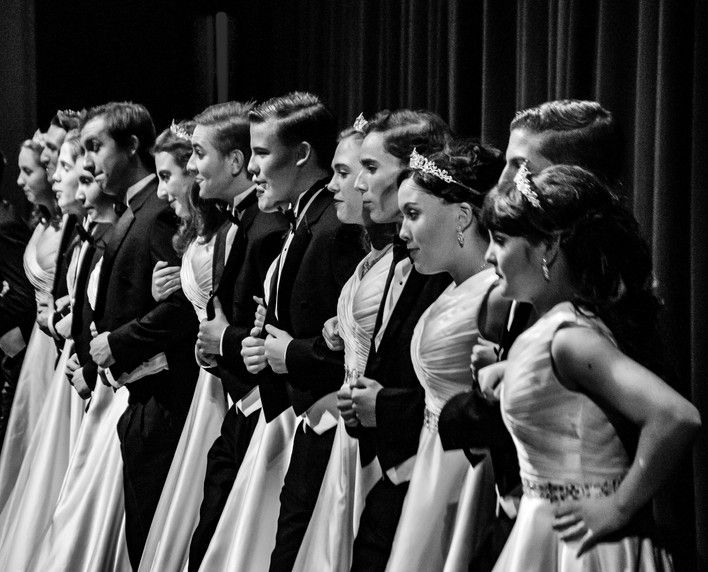Interview: Gwen Berger And Karen Vitco at Eagles Wing Studio
Helping students soar!
 "There is nothing greater than the arts to affect and shape the whole person," says Karen Vitco, who along with founder Gwen Berger, is one of the directors of Eagles Wing Studio, a musical theater company in South Charlotte, North Carolina that has positively impacted and enhanced the lives of its students since their neophyte performance of Little Women (still as CHEA singers) in 2013. Having obtained their nonprofit license in 2014, the company provides rigorous training in the fields of classical singing, dancing and acting techniques, as well as the opportunity for unlimited personal growth in each student. Annually, the company presents a musical in the spring for both the Junior and Senior Companies, as well as a recital in the fall, along with outreach programs at nursing homes, assisted living and community events, all of which has been curtailed temporarily by the coronoavirus. Classes continue with full covid precautions and safeguards. The company's mission includes fostering a lifetime appreciation of the arts and strengthening leadership skills in its performers and students. I spoke with Gwen Berger and Karen Vitco about the company which has now added two gifted artists Mavis Scully and her daughter Guinevere to its ranks.
"There is nothing greater than the arts to affect and shape the whole person," says Karen Vitco, who along with founder Gwen Berger, is one of the directors of Eagles Wing Studio, a musical theater company in South Charlotte, North Carolina that has positively impacted and enhanced the lives of its students since their neophyte performance of Little Women (still as CHEA singers) in 2013. Having obtained their nonprofit license in 2014, the company provides rigorous training in the fields of classical singing, dancing and acting techniques, as well as the opportunity for unlimited personal growth in each student. Annually, the company presents a musical in the spring for both the Junior and Senior Companies, as well as a recital in the fall, along with outreach programs at nursing homes, assisted living and community events, all of which has been curtailed temporarily by the coronoavirus. Classes continue with full covid precautions and safeguards. The company's mission includes fostering a lifetime appreciation of the arts and strengthening leadership skills in its performers and students. I spoke with Gwen Berger and Karen Vitco about the company which has now added two gifted artists Mavis Scully and her daughter Guinevere to its ranks.
Q. Tell me how Eagles Wing came about and how you came up with the name of the company. I understand Gwen was working with the CHEA choral groups, which are choirs for homeschooled students in the Charlotte area.
GWEN: My years with the [CHEA] choir had been phenomenal for the students, for me, and for my parents, who were professional musicians who lent their talents and assistance to us. We all grew and had incredible moments of music ecstasy together. We presented three separate musical theatre performances under the name CYC Players. However, problems [including] still having my four kids to homeschool, three of whom were too young to participate in CYC, were making me look at what my choices were. I chose to leave and begin something else that my own kids could also participate in. This was around February 2013. At the same time, leaders of a newly formed church, Hope Church, had offered me the free use of their facility. In a way, this seemed like a confirmation that I was making the right decision, as without a facility to teach and rehearse in, I could not have realistically started another group.
CHEA choir teachers do not get paid. They volunteer 100% of their time. So one of the biggest obstacles I was facing, as I moved out on my own, was that my students, who had been training with my parents and me, were from single-income families. Everything they had received from us thus far, via the choir, had been free. Therefore, rounding up money to pay for script licenses, costumes and a theatre rental was a real challenge.
Regarding how I came up with the name Eagles' Wings, when I'm in the singing zone, I feel like I'm soaring, as I ride from one air thermal to another, hence, Isaiah 40:31 - "But those who hope in the Lord will renew their strength. They will soar on wings like eagles; they will run and not grow weary, they will walk and not be faint."
Q. How did you develop your curriculum? What in your backgrounds lent itself to the program that you developed for your students?
GWEN: 1st semester - focus on the individual - 3.75 hr. class
September-December
1:25 Voice Master Class (simultaneously 15 min. Private Voice Lessons)
1:25 Acting
1:25 Dance
2nd semester - focus on the team and produce a musical - 3.5 hr. rehearsal
January-May
The voice portion of the program is modeled after the collegiate private lesson/weekly master class. Each week every student gets a 15-minute private voice lesson, and also sings in front of their class and receives a helpful critique. Students learn approximately 6 classical songs 1st semester. Music tracks are made for each song, and students methodically work through the various tracks as they complete their weekly homework sheets. The music tracks are made and modeled after what I teach during a private lesson to not only learn the music and rhythm but the technique, as well. Back when we first started, I recorded all of the teaching tracks, while my mom recorded all the piano accompaniment tracks for the solos. Sadly, my mom had to take a step back several years ago. Fortunately, there are now many accompaniment tracks available, and when we cannot find a good one, we use Dan Vitco, Karen's professional musician husband, to make tracks for us. Teaching -- without knowing why I understood concepts, but was pleased with the results I was seeing -- was simply a result of watching the greatest singers at the Metropolitan Opera and on Broadway over an eight-year span when I lived in Manhattan.
When we first began, dance teachers Sal & Barb Messina (King David Christian Conservatory) choreographed a couple of large dance numbers for us at the end of the summer, just when our first semester was beginning. The students would work on these dances during the semester, learning coordination and basic dance steps. When Karen joined us after the third year, she took the dancing and acting to another level. There is simply no way that we would have progressed without her vision, commitment and expertise. She moved us to a dance studio where serious dance training could begin. Her Holiday Inn was amazing. She also has remarkable organizational skills.
KAREN: My first year teaching dance at Eagles' Wings was the year we would be performing Oklahoma! That year I was not tasked with choreographing but learned all of Sal & Barb Messina's choreography, along with the students, and then was charged with cleaning it up during 1st semester to be show-ready 2nd semester. While we did take a portion of our class time to work on that choreography, I realized that these students needed basic ballet training. Therefore, I began teaching them ballet. At the time, we were still meeting at the church and did not have mirrors or barres - so each student would use a chair for their barre. I did not use a particular curriculum but, having a degree in Dance and [having] taken many dance classes over the years, I put together my own curriculum. In my opinion, ballet is the foundation for most forms of dance. In the summer I convinced Gwen that in order to move forward and help these students become better dancers, we would need to move to a dance studio. Thankfully, we were able to find a wonderful place to rent, and honestly, the students made leaps and bounds in their dancing by being in the proper environment for learning dance.
GWEN: Regarding the acting portion of our classes, Melody Jacquot, one of our singer's moms, taught acting. (My mother and father would one by one pull students out of the acting class to give them their 15-minute private voice lesson). When Karen came, she brought the Meisner acting technique with her.
KAREN: When Gwen asked me to teach acting, I was a little gun shy. My degree and main experience were in dancing, although while living in New York, I did study acting (both with a private coach and at HB Studios) and briefly performed with a small acting group. The only acting technique I had ever learned was Meisner, so I got out my old books and notes and began teaching the kids the basics of Meinser. I really wanted to give them the best instruction I could, so at that time, I found a Meisner teacher here in Charlotte (Kelley Hinman) with whom I could take acting classes again. It was a great benefit, both for me and for my students.
I am so grateful that this year we have brought on Mavis Scully to teach acting as well as dance. As the studio has grown tremendously, our administrative work has increased as well, so I very much wanted to focus my efforts there in serving Eagles' Wings. Additionally, I felt that with my experience I have brought the Sr. Company students to the highest levels I could, and I am thrilled for the provision of Mavis, who can take them to the next levels! I continue to teach voice for the Jr. Company, and I thoroughly enjoy nurturing the students and watching them soar.
Mavis teaches acting for all three levels in our Sr. Company, as well as our most advanced dancers. Finally, Mavis will direct this years' Sr. Company musical, Tuck Everlasting. Her very talented daughter, Guinevere, currently teaches the first two levels of dance for our Sr. Company. She brings an enormous amount of experience and expertise.
Q. What is your approach to casting the shows?
GWEN: In order to keep the program paying for itself, it is important to make sure that everyone has the motivation to keep practicing in hopes of landing a lead role. Every student is afforded the opportunity to grow, but the lead roles certainly are pinnacle events for the students. As much as we try to NOT cast the same students, sometimes the studio lacks a new voice that is ready for the challenge of a lead (or they lack the dance or acting abilities).
KAREN: For example, for Holiday Inn, the role of Ted not only required a great singer but a fantastic tap dancer. At the audition, there were only two real contenders for the role. Both had been leads the prior year. One was a better singer and had a better tap audition. The other was a very hard and diligent worker. In the end we went with that [latter] student. He worked extremely hard that year, taking extra dance classes outside of the studio (ballet and tap) and in the end, proved that we had made the right choice.
GWEN: After making a mock-up casting list, it's incredibly satisfying when your original pick isn't your final pick. We love to be wrong. We love to see students soar and witness the transformation and confidence they gain! Sometimes the best leads are those that aren't the obvious choices. Being teachable is ultimately the biggest requirement.
Q. What is the philosophy of Eagles Wing?
GWEN: Everyone needs the arts in their lives. This is the perfect time for a student to focus on training. For many students this is the only time they will have the luxury to focus on themselves. Unless a student majors in musical theatre in college, this will be the last training they receive. We are training the students so that they grow into multi-dimensional, confident, and creative young adults. You surround yourself with beautiful music, sing it beautifully and it reconfigures your understanding of beauty. Think of colorblind to sighted full color. WOW!
KAREN: In addition to assisting in developing their musical theatre performance skills, we seek to nurture the whole person - helping them to realize their full God-given potential. A student has to make themselves vulnerable when they dance in a class full of students, when they get up and do an acting exercise, or when they have to sing in front of others. Learning to be vulnerable builds trust and intimacy in relationships, it builds empathy and understanding, and increases our self-worth. Students are forced to face their weaknesses in this program, but are also provided with the opportunities to overcome them and thus grow as a human being.
Q. What are the demands of running a theater company?
KAREN: We do not receive any grants from the Arts and Science Council, but rely solely on the fees and tuition we charge students, which we try to keep reasonable. However, it is not enough to pay for everything we need. Which then causes us to rely heavily on ticket sales, which puts a great deal of pressure on filling up those audience seats. There is never a period where we are coasting. There is hard work to be done every day.
Each year we purchase a license for both our Jr. and Sr. Company Shows (be it from MTI, Concord Theatricals, Rodgers & Hammerstein, Tams Whitmark).
On an average, our Sr. Company Show costs approximately $39,000 each year, while our Jr. Company Show costs approximately $10,000. Of course, this can vary from year to year depending on the show and if we have to change venues. Costumes are paid for from the Costume Fees that we charge students. The $350 Registration Fee students pay is supposed to cover the rest, but it does not even come close, particularly for the Sr. Company. Therefore, we require Sr. Company Members to secure at least a $100 donation. We have also participated in Kohls' Volunteer Program and earned donations through that, but again, we have had to heavily rely on ticket sales to make up for the shortfall.
Q. What were some of the most valuable lessons you learned from your own careers as performers, both technically and personally. Tell me about some of your experiences.
GWEN: Focus on what you have control over and drop the other issues. Panic is the enemy. Breathe, breathe, keep breathing.
KAREN: One of the most valuable lessons I learned was that if you want to be successful, hard work is necessary. We live in a society where everyone wants to be an expert (or think they are an expert) but do not want to put in the necessary work and time required. There are no shortcuts to being great - you've got to work hard. If you want to be a great dancer, you've got to train - a lot! If you want to be a great singer - find a good teacher and faithfully practice every day. When I was getting ready to graduate from college, my advisor, at my outgoing interview, said to me, "Karen, when you came here as a Freshman, there were many dancers who were naturally more gifted than you, but through your hard work, you have surpassed them." I have never forgotten that. There is always going to be someone more talented than you, but many times talented people tend not to work as hard. They take their talent for granted. Work hard and you will succeed.
Photo credits: Bob Sorber
Videos
